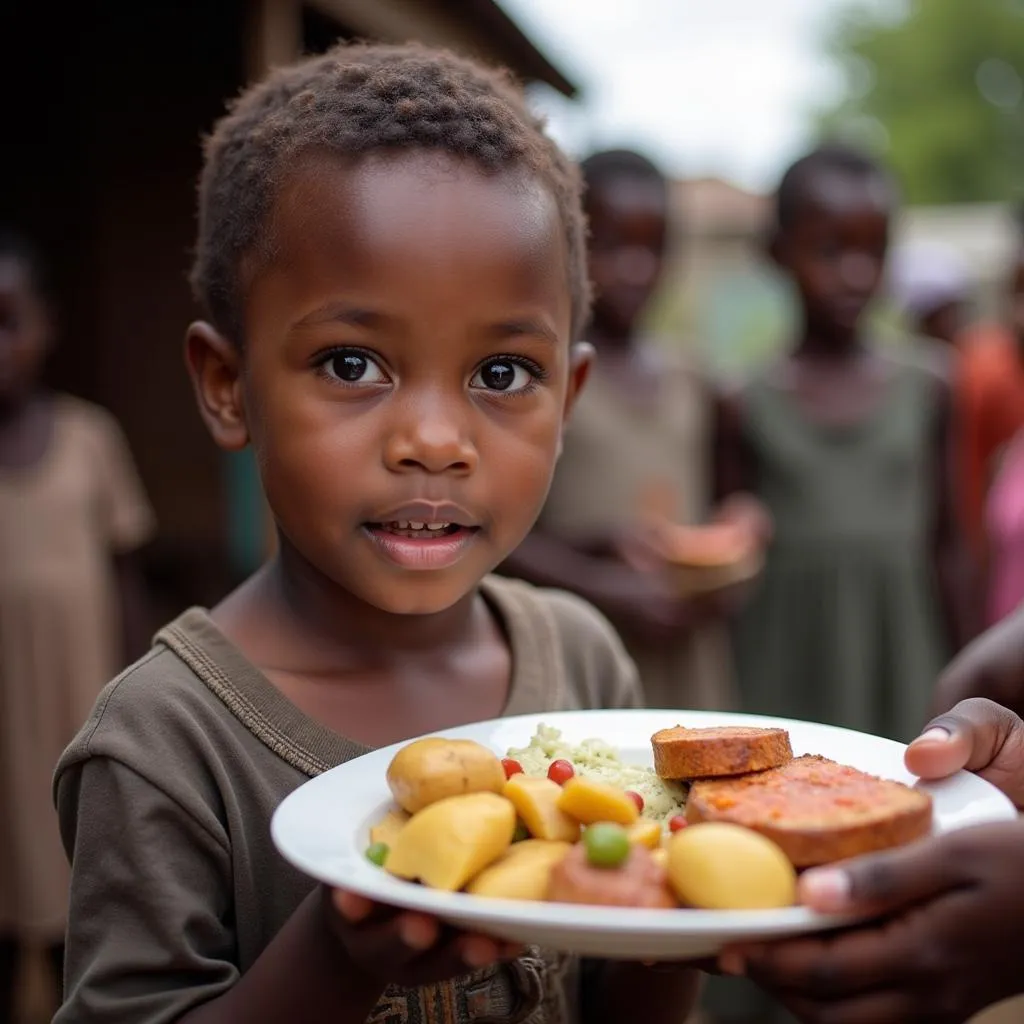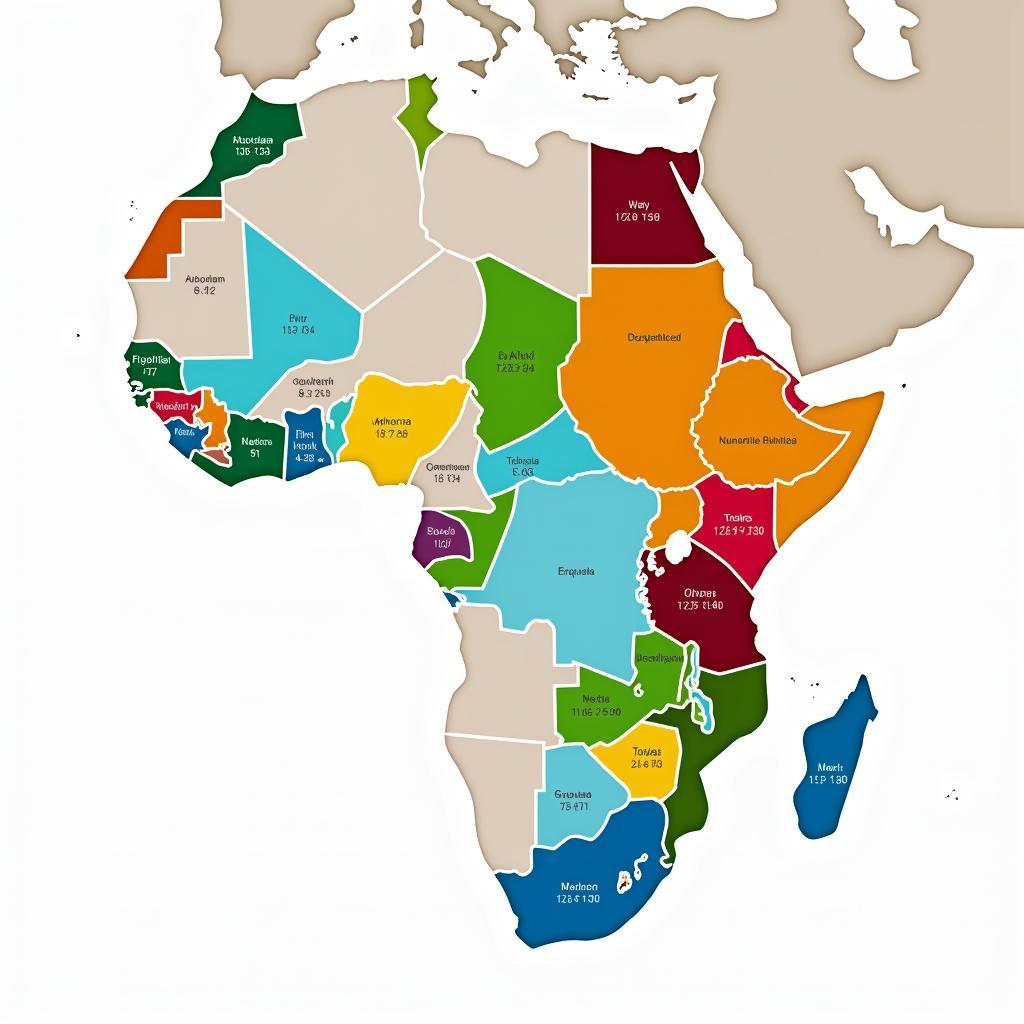Understanding the Challenges of African Hungry Kids
The plight of hungry children in Africa is a complex issue rooted in poverty, climate change, conflict, and inadequate access to education and healthcare. While the phrase “African hungry kids” might evoke singular images of malnourished children, it’s crucial to remember that this is a multifaceted problem affecting millions across the continent in diverse ways.
The Multifaceted Roots of Hunger in Africa
Food insecurity in Africa can’t be attributed to a single cause. Instead, it’s a complex interplay of factors that vary significantly across different regions and countries.
- Poverty: Widespread poverty remains a major obstacle, limiting access to nutritious food, clean water, and essential healthcare.
- Climate Change: Droughts, floods, and unpredictable weather patterns disrupt agricultural production, leading to food shortages and price hikes.
- Conflict and Displacement: Armed conflicts force families from their homes and farmland, disrupting livelihoods and exacerbating food insecurity.
- Inadequate Infrastructure: Limited access to markets, transportation, and storage facilities hinders food distribution, especially in remote areas.
- Lack of Education: Limited access to education perpetuates the cycle of poverty, hindering opportunities for families to improve their living conditions.
 African Child Receiving Food Aid
African Child Receiving Food Aid
The Impact of Hunger on Children
The consequences of hunger are particularly devastating for children, impacting their physical, cognitive, and emotional development.
- Malnutrition: Chronic hunger leads to malnutrition, stunting growth, and increasing vulnerability to diseases.
- Impaired Cognitive Development: Malnutrition during crucial developmental stages can impair cognitive function, affecting learning abilities and future potential.
- Weakened Immune Systems: Hungry children are more susceptible to infections and diseases, increasing the risk of long-term health complications.
- Increased Mortality Rates: Hunger contributes to higher child mortality rates, particularly from preventable diseases.
Addressing the Challenge: Pathways to a Brighter Future
While the challenges are significant, there are numerous initiatives and solutions aimed at combating hunger and improving the lives of African children.
- Sustainable Agriculture: Promoting sustainable farming practices, drought-resistant crops, and improved irrigation techniques can enhance food production and resilience to climate change.
- Empowering Women: Supporting women farmers with resources, education, and access to land ownership can significantly improve agricultural productivity and household food security.
- Investing in Education: Expanding access to quality education, particularly for girls, can break the cycle of poverty and equip future generations with the knowledge and skills to build a better future.
- Strengthening Healthcare Systems: Investing in healthcare infrastructure, providing access to essential vaccinations, and addressing preventable diseases are crucial for improving child survival rates.
Hope for the Future: Collective Action for Lasting Change
Eradicating hunger in Africa requires a multi-sectoral approach, collaboration among governments, international organizations, local communities, and individuals.
- Supporting Organizations: Numerous organizations are working tirelessly to combat hunger and provide aid to those in need. Supporting these organizations through donations, volunteering, or raising awareness can make a tangible difference.
- Promoting Fair Trade: Choosing fair-trade products supports sustainable farming practices and ensures fair wages for farmers, contributing to economic empowerment and food security.
- Advocating for Policy Change: Advocating for policies that address climate change, promote peace, and invest in sustainable development is crucial for creating long-term solutions.
Conclusion
The issue of hungry children in Africa is a complex one, but it is not insurmountable. By understanding the multifaceted causes, acknowledging the devastating impacts, and supporting sustainable solutions, we can work together to create a future where every child in Africa has access to the nutritious food they need to thrive.



